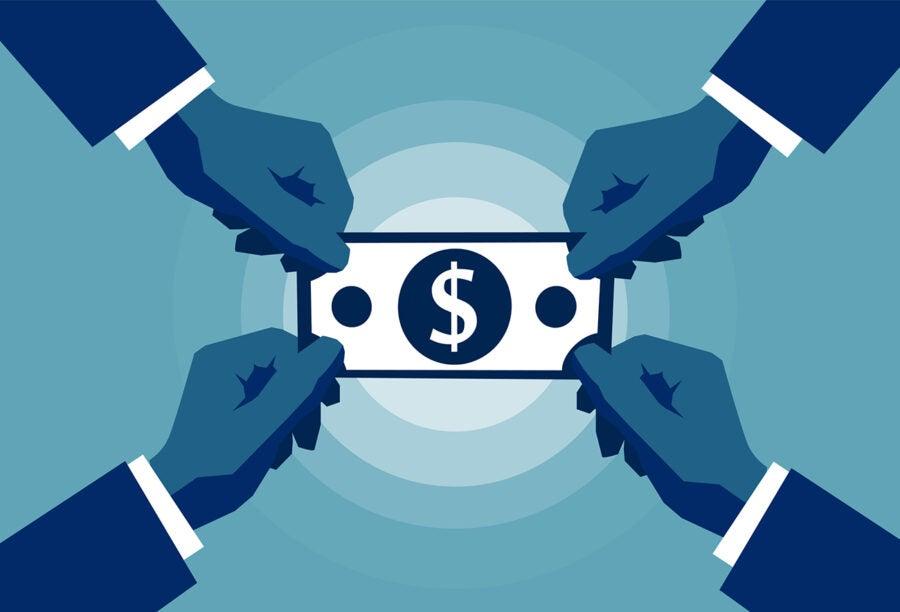Corporate America’s infatuation with stock buybacks shows no signs of waning, even amid shifting economic landscapes and mounting calls for greater investment in workforce and innovation. According to recent data, companies continue to allocate significant capital toward repurchasing their own shares, a practice that has sparked debate among investors, policymakers, and economists alike. As stock buybacks dominate corporate strategies once again, questions arise about the long-term implications for market stability, shareholder value, and broader economic growth.
Corporate Buybacks Continue to Dominate Capital Allocation Strategies
In the face of record earnings and robust balance sheets, many corporations are doubling down on buybacks as their preferred method of returning value to shareholders. Despite ongoing debates over their long-term impact on innovation and wage growth, buybacks continue to eclipse dividends and capital investments, reflecting a strategic focus on boosting stock prices and executive compensation. Industry leaders cite the flexibility and immediacy of buybacks as key drivers behind this sustained trend, often choosing to repurchase shares during periods of market volatility to maximize value.
Recent data highlights how this inclination shapes capital deployment across sectors:
| Sector | Buybacks ($B) | Capital Expenditures ($B) | Dividend Payments ($B) |
|---|---|---|---|
| Technology | 85 | 48 | 25 |
| Financials | 70 | 20 | 40 |
| Healthcare | 30 | 35 | 15 |
These figures underscore a consistent prioritization of buybacks over other channels. Analysts suggest that while buybacks may enhance shareholder value in the short term, the potential consequences on long-term growth and economic resilience remain a point of contention among policy makers and investors alike.
The Impact of Stock Repurchases on Long-Term Corporate Growth and Innovation
Stock repurchases have surged in popularity among many major corporations, driven largely by the goal of boosting short-term shareholder value. However, this strategic focus often diverts capital away from investments that could fuel long-term corporate growth and innovation. Instead of funding research and development or capital expenditures, companies allocate billions to buy back shares, which can temporarily inflate earnings per share and stock prices but may leave the firm less competitive in the evolving market landscape.
Data reveals a growing tension between immediate financial engineering and fostering sustainable growth. While buybacks can signal confidence to investors, an overreliance on them raises critical concerns:
- Reduced R&D budgets: Corporations may cut innovation funding to free up cash for repurchases.
- Debt accumulation: Some firms increase leverage to finance buybacks, jeopardizing financial stability.
- Market perception: Short-term stock boosts can mask underlying operational weaknesses.
| Year | Buyback Spending (Billion $) | R&D Spending (Billion $) | Net Income Growth (%) |
|---|---|---|---|
| 2018 | 180 | 130 | 5.2 |
| 2019 | 210 | 125 | 3.8 |
| 2020 | 220 | 110 | 1.5 |
| 2021 | 230 | 115 | 2.1 |
Experts Urge Companies to Balance Buybacks with Investments in Workforce and Infrastructure
Industry analysts warn that while stock buybacks can boost short-term shareholder value, an overemphasis on repurchasing shares risks undercutting long-term corporate health. Experts highlight the importance of allocating capital strategically to foster sustainable growth, urging companies to channel funds into areas that build lasting value beyond immediate market reactions. This includes investing in employee development, upgrading aging infrastructure, and adopting innovative technologies that enhance productivity and competitiveness.
Key recommended areas for reinvestment include:
- Workforce training and retention programs to enhance skill sets and reduce turnover
- Modernization of production facilities to improve efficiency and reduce environmental impact
- Expansion of research and development efforts to drive innovation
| Use of Capital | Potential Impact |
|---|---|
| Buybacks | Immediate stock price support |
| Workforce Investment | Stronger employee loyalty & productivity |
| Infrastructure Upgrades | Long-term operational efficiency |
In Summary
As the debate over the merits of stock buybacks continues, Corporate America’s unwavering commitment to this practice highlights the persistent prioritization of shareholder returns over other potential investments. While buybacks may bolster short-term stock prices, questions remain about their impact on long-term corporate growth and economic equity. Moving forward, investors and policymakers alike will be watching closely to see if this trend sustains or gives way to a broader shift in corporate capital allocation strategies.
